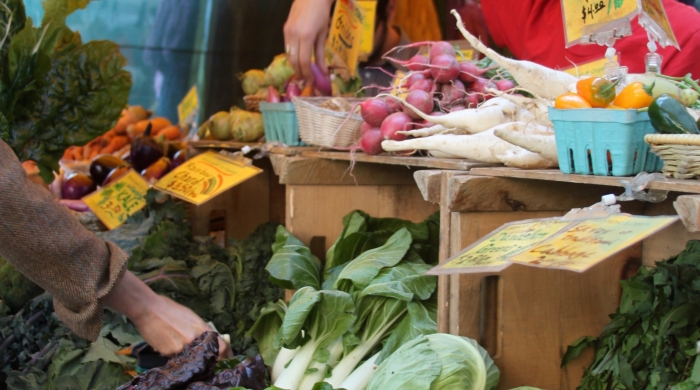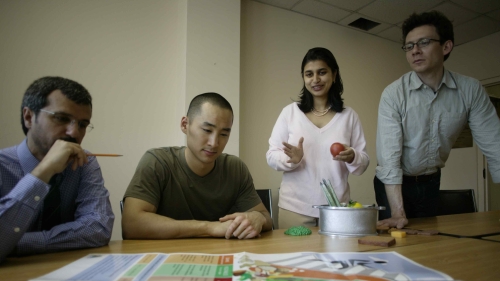The NYU Steinhardt alum shares what Chinese cuisine has to offer to the world of nutrition and how her cookbook was born out of a desire for more information on traditional Chinese medicine.
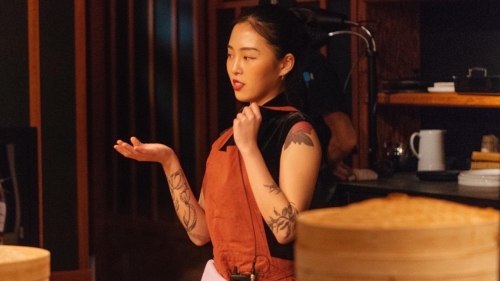
Growing up in Shanghai, Zoey Xinyi Gong (BS ’18, Nutrition and Dietetics/Global Public Health; MS ’24, Nutrition and Dietetics) took for granted how traditional Chinese medicine (TCM) was woven into the cultural fabric of the city—from TCM clinics and spas, to medicinal foods as fundamental staples, to traditional recipes and multi-generational healing traditions.
“I didn’t start appreciating the presence of Chinese medicine until I moved to the United States. It’s interesting how you start to notice things once they’re gone,” she says when sharing her journey back to TCM. While studying nutrition at NYU Steinhardt, Zoey started experiencing health issues and eventually found her way back to TCM through food therapy—an approach that bridges Eastern healing practices with Western nutritional science.
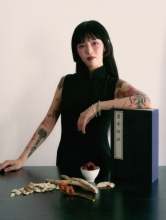
“As a Chinese person, I’m constantly frustrated with the fact that Chinese cuisine is so misunderstood and wrongfully labeled as ‘unhealthy.’ This couldn’t be farther from the truth,” she says.
To battle this misconception, Zoey set out to introduce people to the benefits of TCM food therapy and her cultural foods by creating spaces showcasing the depths of Chinese culture in truly innovative ways. Co-founding The Red Pavilion in Bushwick, Zoey ultimately created a space that combined nightlife with wellness.
Read more about Zoey’s journey in this interview from the NYU Alumni Newsletter.
What inspired you to combine TCM with your culinary expertise?
When I was studying at NYU, there were many opportunities to volunteer for chefs and food events. I took advantage of these and got involved in the food and beverage world. Nutrition has to be connected with culinary work—advising people to eat more vegetables and herbs isn’t useful unless they know how to prepare them well. From the start of my career, I knew I wanted to present my knowledge of nutrition and TCM through dinners and recipes. As a Chinese person, I’ve been frustrated by the misconception that Chinese cuisine is unhealthy. In reality, it’s incredibly nutrient-dense and deeply tied to healing traditions. Many modern health trends find their roots in TCM food therapy. Since so many people love Chinese food, I saw an opportunity to introduce them to TCM in an approachable way: through authentic, healing Chinese cuisine.
For those unfamiliar, how would you explain the connection between TCM and food therapy?
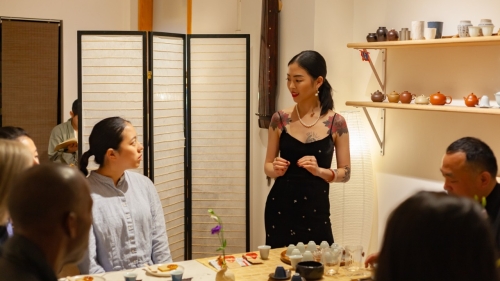
Food therapy is a branch of TCM, just as nutrition is a branch of modern biomedicine. It uses food as a tool to prevent and treat health conditions, emphasizing balance and the healing properties of natural ingredients.
You’ve hosted hundreds of pop-ups and workshops. Do you have a particularly memorable event that stands out?
My first medicinal dinner will always be special to me. Right after graduating from NYU in 2018, I invited the Di Palo’s family in Little Italy—who I had met through an internship—to a Chinese medicinal dinner in my tiny studio apartment. That night marked the beginning of my journey in bringing TCM food therapy to a broader audience. I miss them.
Tell us about The Five Elements Cookbook. What do you hope readers take away from it?
People kept asking me where they could learn more about TCM food therapy, but I didn’t have a book to recommend—so I wrote one. Around the same time, a book agent reached out to me, and I knew it was meant to be. My book is designed for anyone interested in TCM and nutrition, offering practical ways to incorporate herbs and TCM principles into daily life. It’s beginner-friendly but also valuable for acupuncturists looking to deepen their understanding of food therapy. There’s a chapter dedicated to herbs and their functions, which I hope readers reference often. More than anything, I want people to see food and diet through a new lens after reading it.
What inspired you to open The Red Pavilion in Bushwick, and how does it reflect your vision for TCM and food therapy?
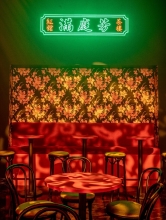
I co-founded The Red Pavilion with Shien Lee, an incredible Taiwanese American entertainment curator. We wanted to create a space that fused nightlife with wellness, all rooted in Chinese culture. By day, The Red Pavilion is a tea house serving herbal teas and healthy dim sum; by night, it transforms into a performance venue and cocktail bar featuring Asian artists and herbal-infused drinks.
The idea was to show that embracing TCM doesn’t mean you have to live like a Zen monk and eat bland congee all day—you can have fun while taking care of your body. TCM is flexible, human-centered, and about balance rather than restriction. Since moving back to China, I’m no longer involved in running The Red Pavilion, but it’s in great hands with Shien, and I encourage everyone to visit!
What do you find most rewarding about blending education, community, and food therapy in your work?
When I was in New York, people would stop me on the street to share how TCM had helped them—how they chose to study it because of my work, or how their chronic symptoms had improved. Knowing that I’ve made a positive impact on someone’s life is incredibly fulfilling. Beyond that, I love showing people a different side of Chinese culture—one that goes beyond stereotypes or news headlines. Sharing the deep traditions, history, and healing wisdom of my heritage is my passion.
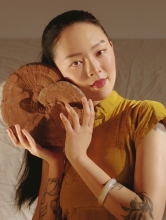
How did NYU Steinhardt shape your career path?
Steinhardt was one of the best choices I’ve ever made! My studies in nutrition still influence my work today. The curriculum gave me both scientific knowledge and a multidimensional understanding of food. Being in the heart of NYC was an education in itself, and that’s why I returned to finish my master’s degree there in 2022.
What’s next for you? Any upcoming projects you’re excited about?
I recently relocated to Shanghai and will be splitting my time between here and New York for the next few years. My focus now is on creating more educational content about TCM and authentic Chinese culture—I need to be here to document it firsthand!
I’m also developing two TCM brands to bring high-quality Chinese herbs and products to a global audience. “Made in China” often gets a bad reputation, but I’m working hard to source the best ingredients from dedicated farmers and producers. It’s been an eye-opening journey into the supply chain of herbal supplements, and I can’t wait to launch the brands in 2025. Additionally, I’m leading TCM wellness tours in China, welcoming guests from all over the world to experience these traditions firsthand. It’s an exciting new chapter.
Related Articles
Nutrition and Food Studies Graduate Sasha Dubose Speaks at Inaugural Queer Food Conference
The 2024 graduate participated in a panel on how food and eating can create community.
Three Steinhardt Alumni Named to 2025 Forbes 30 Under 30
Alumni have founded companies ranging from digital marketing to young feminist publications to cross-cultural cuisine.
Nutrition and Food Studies Research Benefits New York Communities
This is the second in a series of articles highlighting how Nutrition and Food Studies faculty are combining research insights and applied expertise to bring positive change to New York City.
Related Programs
Related Department
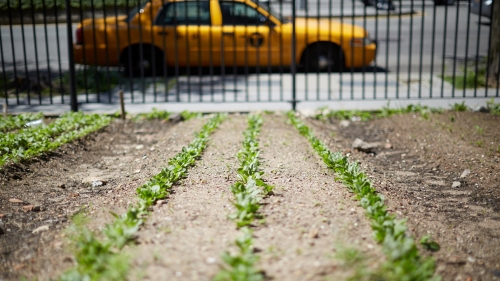
Nutrition and Food Studies
411 Lafayette Street, 5th Floor
New York, NY 10003
Phone: 212-998-5580
Email: nutrition@nyu.edu



